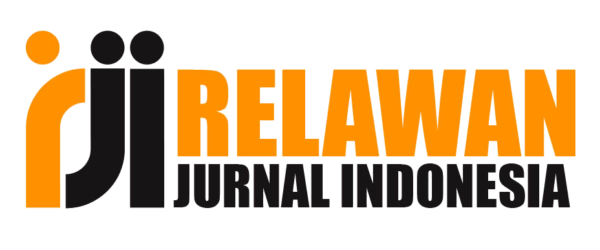Upaya Menuntaskan Ketrampilan Merumuskan Hipotesis dan Mengomunikasikan Hasil Percobaan Siswa melalui Model Pembelajaran GI-GI (Group Inestigation-Guided Inquiry) pada Materi Fluida Statis
Abstract
Tujuan penelitian ini adalah untuk menuntaskan capaian keterampilan merumuskan hipotesis dan keterampilan mengkomunikasikan hasil percobaan siswa kelas XI IPA 1 SMA Negeri 10 Bandung setelah diterapkan model pembelajaran GI-GI (Group Inestigation-Guided Inquiry) Pada mata pelajaran Fisika khsusnya materi fluida statis. Penelitian ini merupakan Penelitian Tindakan Kelas (PTK) yang terdiri dari 2 Siklus. Setiap Siklus terdiri dari Tahap Perencanaan, Tahap Tindakan, Tahap Observasi dan Tahap Refleksi. Penelitian dilakukan dikelas XI IPA 1 SMA Negeri 10 Bandung. Sumber data berasal dari Guru dan Siswa, Teknik pengumpulan data meliputi tes berupa tes keterampilan proses sains, serta teknik non tes berupa observasi aspek keterlaksaan pembelajaran di dalam kelas. Analisis data menggunakan deskriptif kuantitatif. Kriteria keberhasilan dalam penelitian ini yatu secara kuantitatif dilihat dari persentase jumlah siswa yang mengalami ketuntasan capaian keterampilan proses sains dari criteria acuan mininimal sebesar 70 %, kemudian dari analisis tersebut di deskripsikan untuk menggambarkan keuntasan capaian keterampilan proses sains yang dialami siswa. hasil yang diperoleh menunjukan bahwa: (1) keterampilan proses sains siswa terutama aspek keterampilan merumuskan hipotesis mengalami ketuntasan capaian. Pada siklus I diperoleh hasil sebesar 65.71 % siswa dari jumlah seluruh siswa yang menunjukan keterampilan proses sains pada aspek merusmuskan hipotesis, kemudian pada siklus II ketercapaian proses sains siswa menjadi 70.3 % siswa dari jumlah seluruh siswa yang mengalami keruntasan, (2) keterampilan proses sains siswa terutama aspek keterampilan mengkomunikasikan hasil percobaan mengalamai ketuntasan capain. Pada siklus I diperoleh hasil sebesar 54.39 % siswa dari jumlah seluruh siswa yang menunjukan ketuntasan capaian keterampilan proses sains pada aspek mengkomunikasikan hasil percobaan kemudian pada silkus II ketercapaian keterampilan proses sains menjadi 86.79% siswa dari jumlah seluruh siswa yang mengalami ketuntasan.
Kata Kunci: Keterampilan Proses Saians, Model Pembelajaran GI-GI (Group Investigation-Guided Inqury)
ABSTRACT
The purpose of this study was to complete the achievement of the skills of formulating hypotheses and communicating skills of students of class XI IPA 1 Bandung 10 SMA after the implementation of the GI-GI learning model in the Physics subjects especially static fluid material. This study is a Classroom Action Research consisting of 2 Cycles. Each Cycle consists of the Planning Stage, Action Stage, Observation Stage and Reflection Stage. The study was conducted in class XI IPA 1 Bandung 10 Senior High School. Data sources came from Teachers and Students, Data collection techniques included tests in the form of science process skills tests, and non-test techniques in the form observing aspects of learning in the classroom. analysis using descriptive quantitative. The success criteria in this study are quantitatively seen from the percentage of students who experience mastery in the achievement of science process skills from the minimum reference criteria of 70%, then from the analysis are described to illustrate the achievement of the achievement of science process skills experienced by students. The results that: (1) science process skills of students, especially aspects of the hypothesis formulation skills, have attained mastery. In the first cycle results obtained at 65.71% of students of the total number of students who showed science process skills on aspects of hypothesis destroying, then in the second cycle the achievement of science processes students to 70.3 % of students, (2) science process skills students especially the aspects the skill of communicating the results of the experiment experienced. At sikuls I obtained results of 54.39% of students of the total number of students who showed the completeness of the achievement of science process skills in communicating the results of the experiment then on cycle II the achievement of science process skills to 86.79% of students.
Keywords: Science Process Skills, GI-GI Learning Model (Group Investigation-Guided Inqury)
Full Text:
PDF (Bahasa Indonesia)References
Hudojo, H. (2005). Pengembangan Kurikulum dan Pembelajaran Matematika. Malang: UM PRESS.
Joyce, B, Well, M. & Calhoun, E. (2000). Models of Teaching. USA: Alyn and Bacon.
Padri, I Made. (2003). Evaluasi Keterampilan Proses Bidng Studi Fisika di Sekolah. Bandung: Universitas Pendidikan Indonesia
Permendikbud Tahun 2016 no 20, 21, 22 dan 23
Rustaman, N. (2005). Strategi Belajar Mengajar Biologi. Malang: UM Press.
Setiani, D. (2011). Penerapan Model Pembelajaran Inkuiri Terbimbing untuk Meningkatkan Keterampilan Proses Sains Siswa SMA Dalam Pembelajaran Fisika. Skripsi. UPI Bandung: tidak diterbitkan.
Hanson, D.M. 2012. Designing Process-Oriented Guided Inquiry Activities. Diakses dari http://quarknet.final.gov.pdf pada sabtu 26 mei 2018 11.00 a.m
Indrawati. 2015. Model GI-GI: Pengembangan Model Pembelajaran Berbasis SCL dan Scientific Approach untuk Pembelajaran Perkuliahan Strategi Belajar Mengajar Fisika. Prosiding Seminar Nasional Pendidikan dan Sains Program Pascasarjana UNESA 2015.
Indrawati. 2016. The Impact of Gi-Gi Model on the Ability of Developing Lesson Plan and PCK of Physics Prospective Teacher Undergraduate Students. international Journal of Research in Humanities and Social Studies.
DOI: https://doi.org/10.17509/wapfi.v4i2.20187
Refbacks
- There are currently no refbacks.
Copyright (c) 2019 Ahmad Ruslan Abdul Aziz, Agus Danawan, Andi Suhandi, Ani Amiyati

This work is licensed under a Creative Commons Attribution-ShareAlike 4.0 International License.
The Journal Wahana Pendidikan Fisika http://ejournal.upi.edu/index.php/WapFi/ is licensed under a Creative Commons Attribution-ShareAlike 4.0 International License
The Journal WaPFi (Wahana Pendidikan Fisika).
All rights reserverd. pISSN 2338-1027 eISSN 2685-4414
Copyright © Faculty of Mathematics and Science Education (FPMIPA) Universitas Pendidikan Indonesia (UPI)










